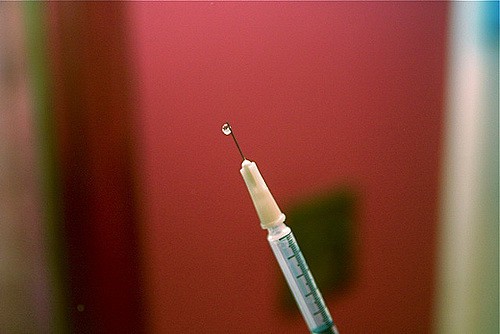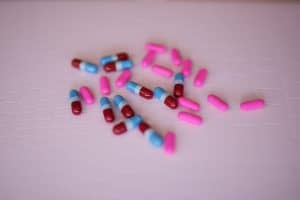
Male birth control injection has high efficacy but side-effects halt trials
pharmafile | October 28, 2016 | News story | Medical Communications | WHO, birth control, male contraceptive, pregnancies
The study, funded by the World Health Organization, found a jab was close to 96% effective in tests to ascertain whether it was a viable form of birth control. The study was conducted on 270 men and, over a period of a year, only four pregnancies occurred.
The treatment was administered in the form of a jab, with a compound of hormones acting upon the participants. Progestogen was the primary acting agent, as it reduced fertility in the participants. The hormone acts upon the brain’s pituitary gland, blocking sperm production. Testosterone was added to the jab to counter the result loss upon the participants.
The jabs supressed the level of sperm production, reducing the number of sperm to fewer than one million per millilitre. A man who has a sperm count of fewer than 15 million per millilitre is considered to be infertile. The drug therefore was able to effectively reduce the sperm count to a level where pregnancies were so unlikely as to be similar to the levels displayed by the female contraceptive pill.
Mario Festin, from the World Health Organization, and the leader of the study said: “The study found it is possible to have a hormonal contraceptive for men that reduces the risk of unplanned pregnancies in the partners of men who use it.”
The treatment was not without risks. In total, 20 men dropped out of the study due to the side-effects of the jabs. The side-effects reported were depression and other issues with mood, muscle pain, acne and increased libido. There were examples of patients having adverse symptoms, with one patient attempting to overdose, one case of depression and one case of an irregular heart rate. All were judged to be potentially linked to the jabs.
The side-effects were judged to be too severe to continue with the study and it was therefore discontinued. Regardless of this negative outcome, there is bound to be continued interest in the area. The success rate of the jabs is particularly high and the reaction to the release of the news is that the study provides a platform on which to conduct further research.
Ben Hargreaves
Related Content

WHO recommends new vaccine for prevention of malaria in children
The World Health Organization (WHO) has announced that it has recommended a new vaccine, R21/Matrix-M, …

WHO releases Medical Product Alert for contaminated cough syrup
The World Health Organization (WHO) has shared a Medical Product Alert for an additional contaminated …

Scientists use AI to find new antibiotic to fight superbug
Scientists at McMaster University and the Massachusetts Institute of Technology (MIT) have utilised artificial intelligence …








